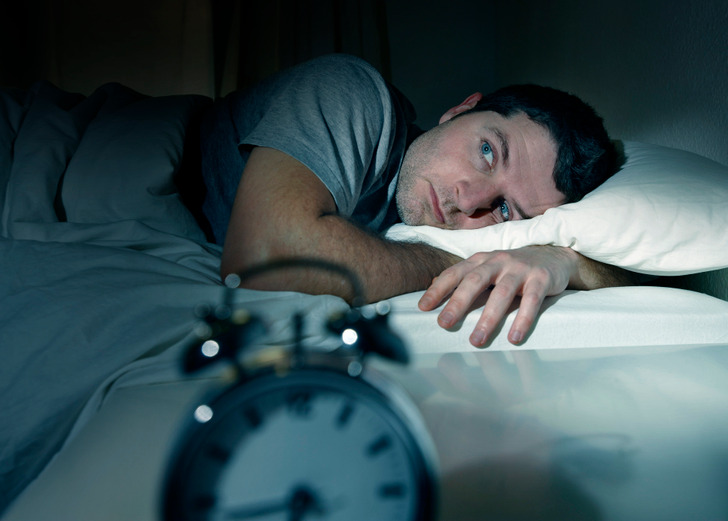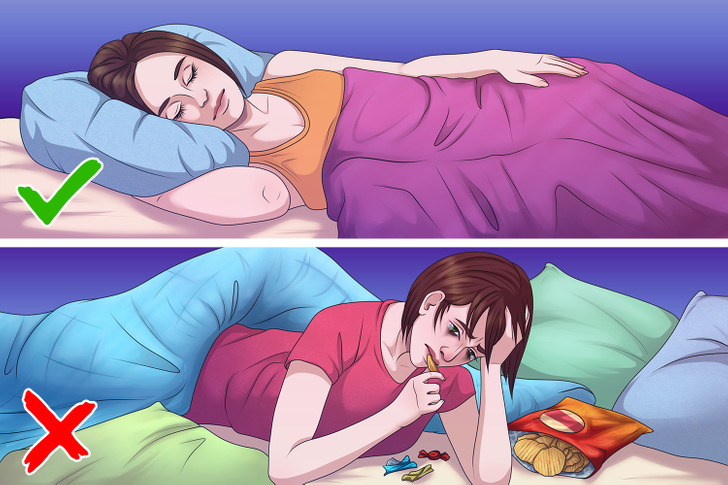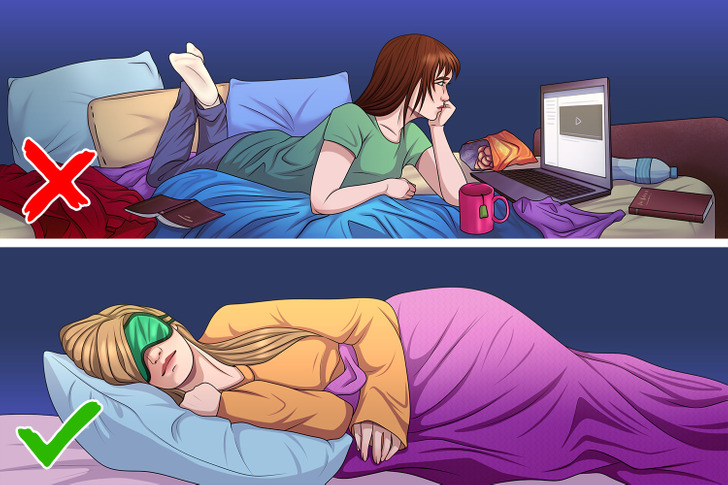My MIL Forbade Me From Coming to Thanksgiving - There Was Heinous Plot Behind It

When we have a fast pace and an exhausting routine, we sometimes feel tempted to give up what is really good for our health, for example, getting a good night’s sleep. Or, at times, no matter how tired we are, we simply can not just close our eyes and get a good night’s sleep. The explanation is simple: we tend to adopt bad habits that have a direct impact on our health and therefore on the quality of our sleep.

The best sleeping position is on your back. It is certainly good for the spine and the back of the neck, but it can cause snoring and sleep apnea. On the other hand, sleeping on your stomach has more disadvantages than advantages. This position forces you to turn your head, which can end up being very painful for your upper body.
If you sleep on your side, you can reduce the pressure on your spine, but your hips will be affected. In the fetal position, the muscles naturally relax, and reflux and heartburn decrease. However, this position can make breathing difficult. In conclusion, it is best to change position from time to time to get a restful sleep.

It is important to know that sleep is determined by a circadian rhythm, i.e. a 24-hour biological clock that varies from person to person. So, to get a good night’s sleep and get up on the right foot, it is essential to adopt a consistent rhythm in terms of bedtime and, above all, getting up.
Getting up late in the morning will delay the next bedtime, and this will have an impact on the following night’s sleep if this behavior becomes repetitive. It is therefore important to have as regular a rhythm as possible to feel a certain tiredness that warns us that it is time to go to bed.

The bed should be regarded as a place dedicated solely to sleep. Any other activity incompatible with sleep should be eliminated. So, we should not watch Netflix series for hours, eat, or read in bed.
What is really important is to go to bed only when we want to sleep. If sleep does not come, it is better to get out of bed. Staying in bed can trigger anxiety that will make it much more difficult to fall asleep. Our bed is first and foremost a place of relaxation where we should keep all negative thoughts away.

Sometimes our days are long, so we put off our physical activity until the evening, which is a serious mistake. Exercising at the end of the day raises our temperature, and activates us physically and psychologically, and these two factors do not go hand in hand with a good night’s sleep.
What you can do at this time of day is to walk without exerting yourself too much. Also, try to avoid hot baths just before going to bed, as well as any intense intellectual activity until late at night.

To sleep better, it is best to eat a light dinner, and almost always at the same time. It is absolutely essential to avoid eating too heavy a meal before going to bed.
But be careful: it is not a matter of not eating at all because you will inevitably wake up with a terrible craving to attack your fridge. You should also avoid energy drinks such as coffee and any other caffeine — there’s nothing better than a good herbal tea before going to bed!

When conditions are comfortable, it is easier to fall asleep. Soft light, soft music, and a comfortable bed are three ingredients for a restorative sleep. Other factors to control are noise, which should be avoided at all costs, and the temperature of your room, which should not be too hot or too cold. It is advisable not to exceed 64-66°F in your bedroom, which, by the way, should be ventilated for 10 minutes every day.
On the other hand, any type of blue light screen should be turned off before going to sleep. It is preferable to adopt relaxing rituals according to one’s preferences to ease the passage into the world of dreams.
It’s very important to keep an eye on our well-being. Let’s have a look at what happens if you start prioritizing your sleep.











